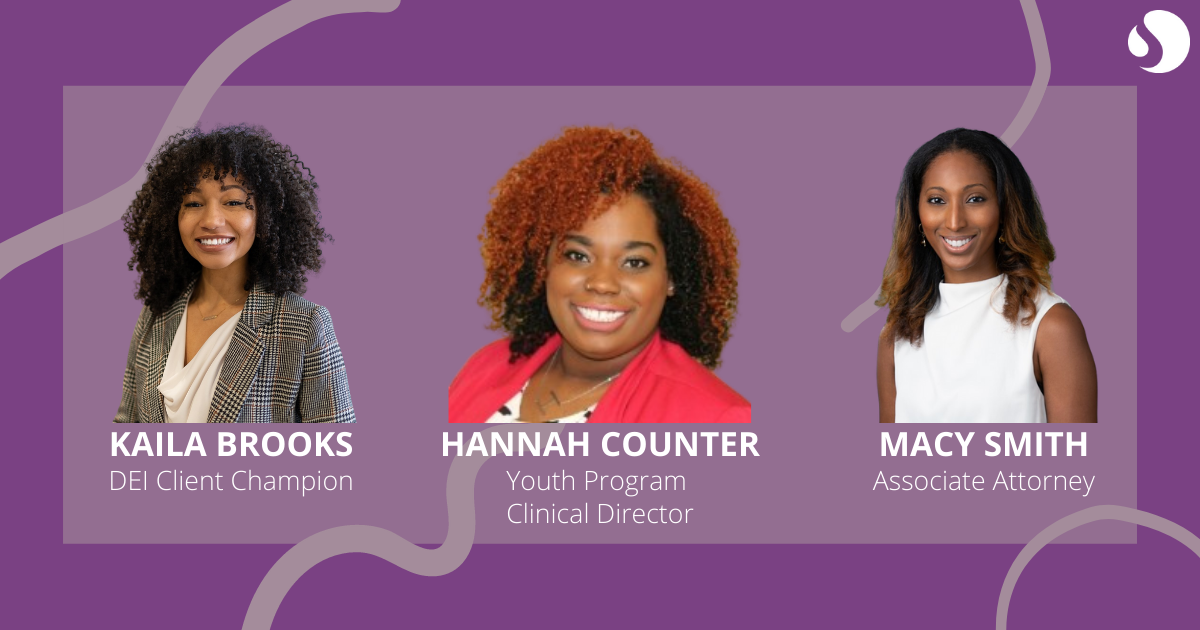03/04/2022
In honor of Black History Month, Sendero hosted a panel to discuss and showcase the challenges, opportunities, and successes of Black professionals in the workplace. Employees had the option to watch the panel virtually or from our Dallas and Houston offices while enjoying food from local Black-owned restaurants: Hurd’s Cuisine, Cake Me Crazy, and Upper Kirby Bistro.
With a focus on “Black in Business,” we sat down with three profound female professionals in the Dallas community and discussed representation, gentrification, mental health, challenges faced by Black women in the workplace, and the rise of Diversity, Equity, & Inclusion.
Meet our panelists: Kaila, Hannah, and Macy.

We are so thankful to these three inspiring women for sharing their stories and experiences with us here at Sendero. Keep reading to discover some of the key insights from the Q&A portion of the discussion.
What are some of the barriers for the Black community in prioritizing their mental health?
HANNAH: Seeing Naomi Osaka and Simone Biles prioritize their mental health over sponsorships, expectations, and payouts is such a win; not only for mental health in general, but also for young Black women and Black people. In 2020, with the death of George Floyd, we saw this idea of generational trauma rise to the surface. As unfortunate as his death was, it served as a catalyst for people to really start to think about and prioritize mental health, especially in the Black community. In this country we prioritize physical health, but people need to realize mental health is just as important.
Black people have faced numerous barriers in mental health over the years, the largest being access which is rooted and steeped in racism. Historically, the Black community did not have access to the quality mental health services that are seen as best-practice in psychology today. This forced Black people to learn to cope with mental health in other forms, such as religion and involvement in the Black church.
One of the largest things we are still facing with mental health is racism and the overall stigma within our society surrounding mental health and disorders. As a Black mental health professional, it is part of my purpose and passion to serve people who look like me. I realize the barriers these individuals face and know that these individuals would not have access to mental health services otherwise. It is incumbent upon me to give them the best possible services they deserve so that they can access the life that they want.

